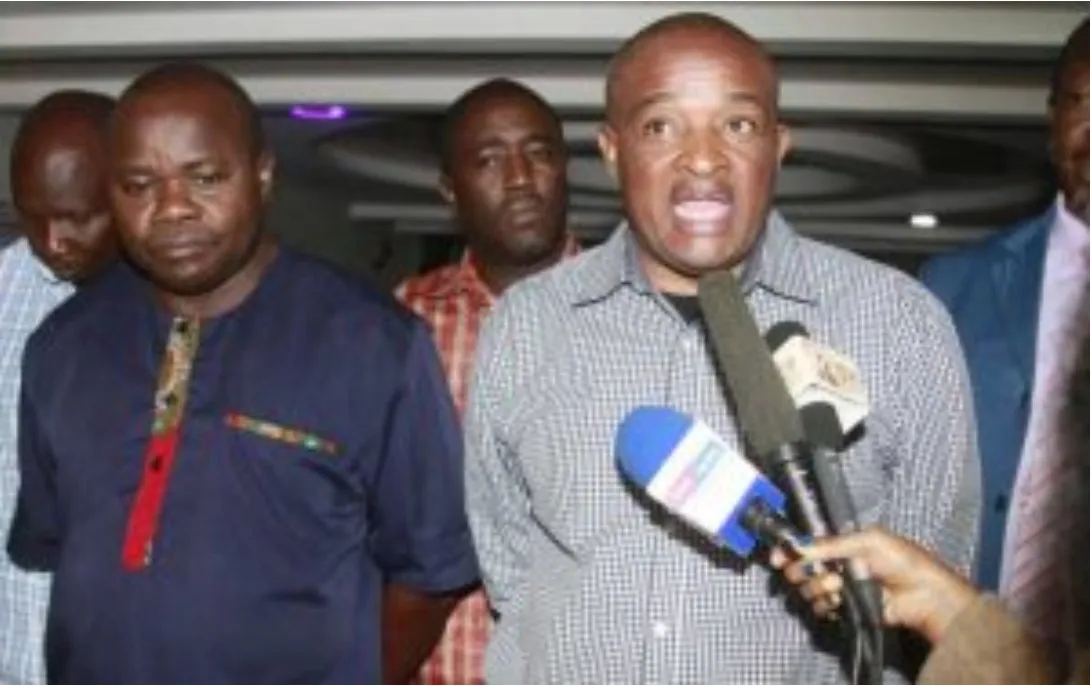Business
Collapsing Harambee Sacco A Sinking Titanic

Former financial giant Harambee Sacco Society Limited is fighting for survival following a rapid membership loss that has left it on the brink of collapse.
In the last three years alone, they have lost over 17,000 members, leading to a Sh4.82 billion payout.
This latest development comes in the backdrop of endless reports of mismanagement and fraud which threw the Sacco into disarray.
The majority of its clients are drawn from the military, National Police Service, National Youth Service, national and county governments, parastatals and departments and constitutional bodies.
Top executives led by Chief Executive Officer (CEO) George Ochiri as the Chief Executive Officer and Chairman Macloud Malonza have attributed the biting exits to retirements within the civil service cadres.
Before his appointment as the Harambee Sacco CEO, Ochiri served as the former chief executive of the Safaricom Sacco.
Its financial report for the year 2021 showed that ongoing departures are largely founder members who make up the most loyal segment of its membership.
The records further show that the Sacco’s operation costs increased from Sh274.49 million to Sh2.166 billion in 2021 due to higher financial expenses and personnel expenses.
However, its annual revenue for 2021 surged to Sh4.2 billion having recorded a 32 per cent growth attributed to an increase in loan uptake, while the firm disposed of assets to boost liquidity.
The growth of members’ deposits and savings was hindered by almost equivalent withdrawals, where the society paid out a total of Sh1.42 billion to members who withdrew in 2021, compared to Sh1.32 billion paid to members who left the Society in 2020.
For the year 2021, the loan book contributed to 81 per cent of the revenues, with loans and advances going up by 11 per cent from Sh21.87 to Sh24.38 billion in 2021.
In 2017, Harambee Sacco Limited deficit before tax rose to Sh1.39 billion compared to Sh197.2 million surplus before taxation in 2016.
Needless to say, the institution has regularly been in the cross-hairs of the Sacco Societies Regulatory Authority (SARSA).
In 2012, a SARSA inspection found that the Harambee was in an acute liquidity crisis having failed to meet nearly all prudential parameters.
They had a negative core capital and had material variances between the outstanding loan portfolio reports and provisions for loan losses, at the time.
In 2015, an official at the Sacco was sent on compulsory leave while an interim audit of controversial expenditures and inconsistent questionable figures of Front Office Savings Activities (FOSA) loan totalling Sh3bn was underway.
He was temporarily forced out just three days before the deadline for submitting reconciled FOSA loan report to SARSA.
The audit targeted three lines of alleged cash fleecing conduit of imprest, I Owe You, a summary balance sheet detailing bank records of loans paid up in cash and a marketing vote.
The Sacco management had committed to avail reconciled financial records particularly explaining inconsistent figures of the Sh3bn FOSA loan.
In the past, Harambee Sacco Limited has been embroiled in controversies of massive financial scams and unresolved murders of senior officials.
For instance, former Finance Manager, the late Benson Ojiambo, was murdered at point-blank range by a lone gunman in Embakasi, Tassia Estate along Outering Road on October 29, 2012.
A week prior to his death, Ojiambo was set to appear before the Agriculture, Co-operatives parliamentary committee for questioning over the alleged financial scams, and massive fraud cover-ups as revealed in SARSA’s confidential report in 2012.
The late Ojiambo was in charge of reconciling collections from the cashiers and ATM withdrawals with the computer entries and had prepared to present a report on the ATM scheme to the parliamentary committee.
Ordinarily, SACCOs are allowed to borrow a maximum borrowing of 25 per cent of the total value of assets upon an AGM authorisation through a resolution by all members.
Kenya Insights allows guest blogging, if you want to be published on Kenya’s most authoritative and accurate blog, have an expose, news TIPS, story angles, human interest stories, drop us an email on [email protected] or via Telegram
-

 Grapevine2 weeks ago
Grapevine2 weeks agoAlleged Male Lover Claims His Life Is in Danger, Leaks Screenshots and Private Videos Linking SportPesa CEO Ronald Karauri
-

 Grapevine1 week ago
Grapevine1 week agoRussian Man’s Secret Sex Recordings Ignite Fury as Questions Mount Over Consent and Easy Pick-Ups in Nairobi
-

 Investigations5 days ago
Investigations5 days agoMulti-Million Dollar Fraud: Three Kenyans Face US Extradition in Massive Cybercrime Conspiracy
-

 Economy4 days ago
Economy4 days agoIran Demands Arrest, Prosecution Of Kenya’s Cup of Joe Director Director Over Sh2.6 Billion Tea Fraud
-

 News3 days ago
News3 days agoTHE FIRM IN THE DOCK: How Kaplan and Stratton Became the Most Scrutinised Law Firm in Kenya
-

 Business5 days ago
Business5 days agoA Farm in Kenya’s Rift Valley Ignites a National Reckoning With Israeli Investment
-

 Business2 weeks ago
Business2 weeks agoM-Gas Pursues Carbon Credit Billions as Koko Networks Wreckage Exposes Market’s Dark Underbelly
-

 Africa1 week ago
Africa1 week agoFBI Investigates Congresswoman Ilhan Omar’s Husband’s Sh3.8 Billion Businesses in Kenya, Somalia and Dubai















